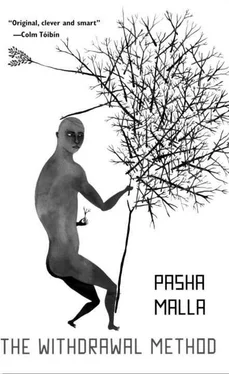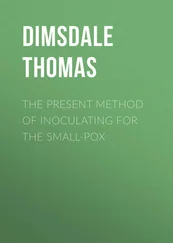"I believe it is." Maria Theresa gestured and from somewhere appeared a dark, pretty girl with a thick dossier in her hands. "Now, chess is all fine and good, but if you're up to it, we would like to present to you a true test of your intellectual prowess."
As the empress's maidservant handed Kempelen the dossier, his fingers lingered for a moment against the young girl's. "Hello," he said. "What's your name?"
The girl froze. Kempelen's hand snaked up to her wrist.
"That's Franciscka," interrupted the empress. "She's dumb."
"Dumb?"
"Mute. She hears fine, but can't — or won't — say a word."
"Ah," said Kempelen, and at this Franciscka withdrew, scampering into the shadows. Kempelen watched her for a moment, then returned his attention to Maria Theresa.
"This, Wolfgang, is the Hungarian civil code, written in Latin, which needs translating into German. We hear you are quite gifted in both."
"When do you want it by?" asked Kempelen, weighing the papers in his hands.
"No rush," said the empress, "but we're looking forward to seeing your work."
Kempelen bowed. "Pleased to be of service."
DAYS LATER A translation appeared of such sophistication that it sent rumours rippling through the empire of a mysterious crippled prodigy who had turned the empire's archaic charter into Germanic magnificence.
Asked about his process by Maria Theresa, Kempelen shrugged. "Languages are just equations of one another — it's all a matter of figuring out what best equals what."
The empress loved this, the precision of it, and waited for more.
"Now tell me," he asked, looking around. "This Franciscka — she's not married?"
"No, Wolfgang, not that I know of."
"Interesting."
ON THE STRENGTH of this translation, Wolfgang von Kempelen earned a permanent position in the Austro-Hungarian court. Gossip persisted about the nature of his relationship with Maria Theresa, exacerbated by public speculation as to the sexual orientation of Maria's husband, Francis Stephen, Duke of Lorraine. (The duke's imperial role could be best defined as secretarial, and he also delighted in the hobby of amateur florist — admittedly, his bouquets were among the most stunning in the land.)
But civilian conjecture remained just that. Neither Kempelen nor Maria Theresa had anything in mind beyond a strictly platonic relationship: they played chess; she saw his intellect as a tool of the empire, something that would lead them forward; he delighted in having a venue in which to exercise his ideas.
His first day on the job, the empress took Kempelen on a walk about the palace grounds, slowing her pace to match the counsellor's limp. Having spent most of their time together seated on either side of a chessboard, Maria Theresa was surprised at his gimpy leg trailing stiffly along — the fragility it suggested unnerved her. She preferred to think of this fellow as a pillar on which the edifice of a new Austria-Hungary would be built, rather than some pathetic cripple stumbling from one place to the next.
Kempelen halted before a team of gardeners watering the manicured lawns and hedgerows.
"Have you ever thought," he said, eyes narrowed, "that a single machine might be able to do the work of a dozen of these men?"
The empress watched him, trying to imagine what he saw, what plans and schematics were already being sketched in his mind's eye. "A machine?" she asked.
"Yes. A machine."
That afternoon Kempelen retreated to his court-appointed villa in the woods. Days later, unshaven and sleep-deprived, he re-emerged with elaborate plans for a sprinkler system to irrigate the entire grounds of the palace. It was quickly built, widely considered a stroke of genius, and, while failing to endear him to the gardeners who lost their jobs, raised his stock even higher with the empress, who promoted him immediately to senior counsellor.
The accolades were fine, but it was more the thrill of creation that pleased Kempelen: here was something that he had conceived and given life to, something that was inarguably superior to its human counterpart. He stood proudly before the court as they applauded him, chest puffed out like a peacock, lame leg hidden behind the podium, and in his speech promised even more impressive inventions to come.
That evening's feast ended with Kempelen drunk and in bed with one of his fellow counsellors' daughters, something that quickly became a trend over the months to follow. While he systematically redesigned the palace's irrigation, waste disposal, and archival systems, Kempelen just as systematically made his way through the palace's female courtiers and maidservants, luring them to his villa in the woods, only to shoo them out the door the following morning like mice discovered in the larder.
Soon Kempelen had had them all — that is, with the exception of the elusive Franciscka, who fled any room he entered, always with a flirtatious glance over her shoulder before retreating to some distant corner of the palace. During a chess match that saw the empress taking Kempelen's pieces at will, he confided to Maria Theresa that Franciscka seemed to represent the final variable in the equation of his life, and that without her he felt things sprawling infinitely, with no end in sight.
"So even your love life you reduce to science?" wondered the empress.
Kempelen frowned at her, and it was the frown of one who, hearing his own philosophy spoken aloud by another, was forced to bring it into question.
"You've always told me everything is science. Even chess, you've said, relies on logic so precise that a machine could play it."
Kempelen shrugged. "Maybe I'm in love with her."
"Oh, Wolfgang!" exclaimed the empress, shaking her head. "Be careful. There's something suspicious about that girl — always lurking around, silent, popping up in places she shouldn't be. I'd stay away from her, if I were you."
After a restless, sleepless night, Kempelen lay in bed staring at the ceiling. He pictured Franciscka's face: those big, brown eyes, that little nub of a nose, the lips thin and tightly drawn, as though hiding something forbidden within. Thoughts of her made his head swim, unable to rest on anything definite or absolute; formless images and ideas went caroming off one another, colliding and spiralling away. Kempelen closed his eyes and, one by one, methodically, he pulled the fragments in and laid them out as pieces to a puzzle. With systematic precision he went through, organizing, arranging, and as he did, something conclusive began to take shape.
Kempelen swept the bedclothes aside and, ignoring the matter of dressing, limped briskly out to the maidservants' quarters in his nightshirt, where he pounded on the door, dropped to one knee, and, when a startled Franciscka appeared, promised to renounce his licentious ways if she would agree to marry him.
Franciscka looked down at the man grovelling at her feet, eyes reflecting sky. She felt very little, other than a vague satisfaction that she had played her cards right for the past two years, not like those other tarts around the palace. After six years as a maidservant, Franciscka was fed up with being bossed around by the capricious Maria Theresa and knew that as a counsellor's wife she would be excused from her position.
Extending her hand to Kempelen, who took it and pressed it to his forehead, Franciscka thought fondly of this impending freedom. Kempelen looked up, saw her smiling, and mistook it for lover's joy. His heart raced: he finally felt something that defied his wealth of knowledge, a deep, booming sense of uncertainty that brought him to his feet. He swept his bride into his arms and hollered, "I love you!"
AT THE WEDDING, Maria Theresa appeared ambivalent, yawning openly as the vows were read. Beside her sat Francis Stephen, gloating at the magnificence of his floral arrangements, bright and glorious around the palace chapel. The benediction ended, Kempelen beamed at his bride, and then plunged at her for a nuptial kiss vigorous enough that the priest had to step in and pry him away. The place erupted with cheers — most enthusiastically from Kempelen's colleagues, relieved that the palace's most coveted bachelor was finally off the market. Maria Theresa clapped wanly, a thin smile on her lips, while her husband blew kisses to the newlyweds as they made their way under a shower of rice out of the chapel.
Читать дальше












